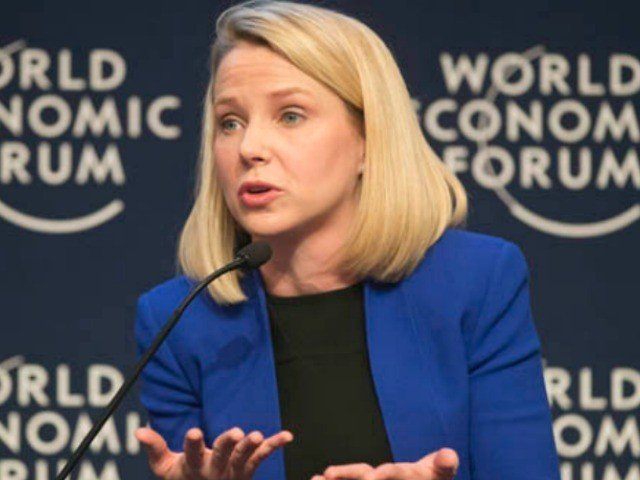The speculation about Yahoo and Twitter went into overdrive this week when Yahoo’s former interim CEO Ross Levinsohn told a CNBC interviewer on Tuesday morning that he believed Twitter should buy Yahoo after the Asian assets of Yahoo are sold.
Levinsohn was appointed crisis CEO of Yahoo in 2012, but the Board of Directors passed on him for the permanent job and recruited Marissa Mayer from Google.
Levinsohn stated, “If you put Twitter and Yahoo together, it would be the most powerful force in the media business.” He added that it would be “a perfect match.”
Yahoo’s stock has tripled since Mayer took the helm in 2012, but Twitter’s shares are still down in a hot tech market since the company went public14 months ago. To do a “deal” to buy Yahoo, Twitter would need to raise more debt or hand over a significant amount of stock to the hedge funds that managed the turnaround of Yahoo.
Until Levinsohn’s comments, Yahoo has been seen as the acquisitive party. There have been bubbling rumors for some time that Yahoo would marry AOL or buy a big cable company such as Scripps Networks or CNN. The stock market popped Twitter’s stock up 6.5% after the comments, but has been bleeding back some of the gain.
Yahoo expects to have a $9 billion war chest and a stable business after spinning off its Asian assets, including its interest in China’s Alibaba. The Yahoo assets would be close to Twitter’s $23 billion market capitalization. It would take Yahoo’s cash, plus a big slug of Twitter’s stock, to buy Yahoo.
Yahoo’s first acquisition was the purchase of Net Controls, a web search engine company, in September 1997 for $1.4 million. Yahoo’s largest acquisition was the purchase of Broadcast.com, an Internet radio company it bought for $5.7 billion–and whose value disappeared over time. In all, Yahoo has acquired a total of 112 companies, and has snapped up almost 40 startups since Mayer joined the company in 2012: the biggest buy was Tumblr for $1.1 billion.
Mayer told Businessweek that Yahoo only is interested three types of acquisitions: smaller deals to get talent in mobile; strategic acquisitions like Summly, which now powers the Yahoo news app; and major ones like Tumblr that can reach a new demographic. Despite all the deals, hedge funds that dominate Yahoo stock continue to grumble that the Yahoo turnaround has been too slow under Mayer.
But it is Twitter that gets the most grief from securities analysts that have seen the stock as “dead money.” In November, Twitter CEO Don Costolo promised a long list of changes at the company’s first analyst day that could add $11 billion in revenue over the next five to eight years.
Some of those promises include 1) an “instant timeline” that would allow new users to get value out of the service right away; 2) ability to “record, edit and share” video using a Twitter app; 3) a “what you missed” feature to show people the most important tweets that were posted since they last logged in; 4) ability to share public tweets within private messages 5) new mobile apps in addition to Twitter and Vine; 6) content organized around geography and events; and 7) a “quick promote” option so that users can turn their tweets into advertisements with a couple of clicks. Yet Twitter has talked product changes to death, while blowing through five heads of product in five years.
There will always be rumors in the stock market, but a Twitter-Yahoo deal would make more complimentary sense than most of the usual market chatter. Marissa Mayer took a pig without lipstick and has brought the Yahoo brand back into relevance in media content. Twitter is the rock star of mobile, but has no track record of radically expanding its franchise past gossip to move beyond microblogging to the type of Internet homepage experience Yahoo is all about.
There may be love in the air on this deal.

COMMENTS
Please let us know if you're having issues with commenting.